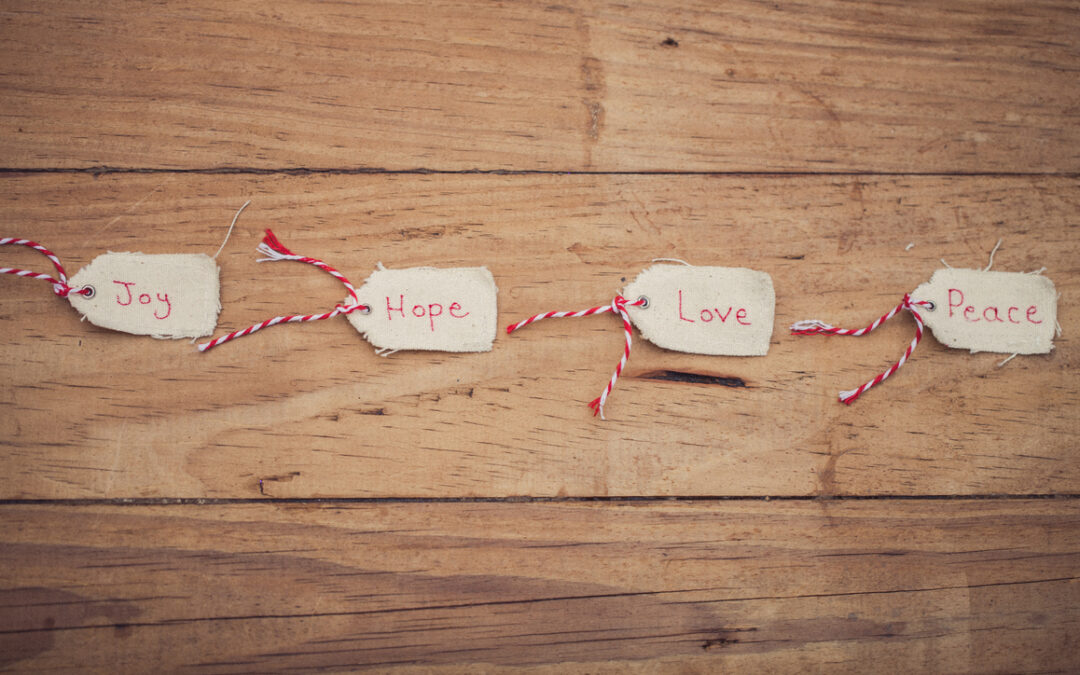Five years ago Christmas stopped being fun. It had no reason to stop being enjoyable. I am a pastor charged with the teaching and preaching of this sacred and holy season, a season and story I delight in sharing. My children were peak ages for dollhouses nestled under the tree, slow sleepy drives to look at Christmas lights, evenings nestled in to read picture books about the birth of Jesus and magical thinking. It had every reason to stop being enjoyable. Our holiday negotiations with extended family on when and how we celebrated the holiday added compounding pressure on one of my busiest seasons in the church. My partner traveled non-stop doing end of year presentations and business planning for the next year with his partner companies, coming home exhausted and eager to re-engage the family. His enthusiasm added extra responsibility and pressure to execute the season and keep him in the loop when he was in Canada or Europe or Chicago.
I share this because I don’t think I am alone. I have stood at the back of the preschool Christmas program with other tired parents. I have shared panicked texts about what to buy and helped girlfriends brainstorm solutions for the holidays that juggle family expectations.
A little over two years ago I read Desiring the Kingdom by the theologian James KA Smith for a theological cohort gathering. Smith’s work is a little on the dense side (although he also has wonderful books written for anyone to digest) but it turned out to be well worth the brain power because the basic premise of the book changed my spiritual life permanently. In it he talks about how we orient our hearts, explaining that there are things that are competing for the trajectory of our heart–capitalism and consumerism, nationalism and militarism. Each one asks us through small daily habits to turn our heart towards them. Instead, Smith challenges that we should cultivate daily practices that orient our heart towards the kin-dom of God. We are not what we think, as Descarte would argue, we are actually what we do over and over. We are essentially our habits and if what we do reveals what we love, we ought to be more mindful about what we do.
After reading Smith’s book I began to ask troublesome questions about all my habits. Does this orient my heart towards God or towards consuming? How does this care for my neighbor? If someone were to step into my life and perform an audit of my habits, where would they say my heart lies? These were not easy questions nor did they have easy answers. While I didn’t have all the answers (and still don’t) I knew that in this moment God was inviting me to think about how I would live a life of faith that demands not just something of me but demands my whole heart.
So when Advent rolled around two years ago, I had a new framework I had been wrestling with for several months. What could I do to shape my heart toward Christ in a season that is made to steer my heart (and my children’s hearts) towards consumerism? And so I sat down and talked to my partner and we decided together to make some changes. I am in the midst of our third year of doing the Advent and Christmas season differently and it feels like home. Here are a few of the practices we’ve been cultivating:
Peeling Apart Advent from the Liturgies of Capitalism
One of the ways God has been working in my heart is showing me the ways in which so much of my life–my time, my money and ultimately my heart is shaped by the pervasive capitalism of my American suburban context. Covid may mask this as there is no store-going but the digital invitation is perhaps more pervasive, subtle and ultimately dangerous. As part of our Advent practice we choose our family’s gifts in the fall, so that by the time Advent rolls around our time and energy isn’t focused on finding the right gift for the hard to shop for family member.
When I tell people about this Advent practice they often roll their eyes at me like I am highly organized or an orver-achiver. I am not. I just set a different deadline, I scooch the budget over a month or two. The resulting shift has meant that my Advent has more breathing space. No longer occupied with consuming and gift giving, there is headspace and calendar space for reading, studying and serving in intensional ways.
Prioritizing Authentic, Intentional Connection
Imagine my surprise when I discovered that once I cleared off all the activities that involved consuming that there was space for community. In past years this has meant connecting with friends and family in person. In this pandemic shaped year it’s meant Zoom gatherings and game nights with the kids. The calendar space creates headspace and so as a pastor and friend I am better about checking in on people in their various stages of grief with tenderness and thought. I am also better equipped to navigate the family dynamics with a clearer head and energy to creatively imagine how we might gather.
Cultivating a Practice of Resistance
When the kids were little we started an Advent book calendar as an act of resistance to the pervasive Elf on the Shelf and Santa culture that whispered in my children’s ear that their belovedness was somehow tied to their goodness. Each book in our Advent calendar is a book that either teaches the Christmas story or the theological idea that they are a created and beloved child of God. This small practice created an alternative narrative for our family–we were God’s beloved and when we live thoughtfully we can be bearers of God’s light in Christ.
There are so many ways to practice resistance, that are really just practicing living into God’s narrative. Lighting a candle in the evenings and while it is lit, everyone stays off their devices. Taking a walk early in the dawn each day and praying gratitude for the day as the light breaks into the darkness. Abstaining from holiday inspired sugar a few days a week to clear the mind from the brain fog it creates so you can clearly observe God’s movement each day. There are a million ways to disrupt a stressful Advent and shift to a gentler more generous Advent. It only takes one small practice to shift the trajectory of the heart.
What changed in me these years I understand to be part of some ongoing project God is working into my heart. Strangely pandemic has helped reinforce the ways that God was reshaping me, rather than disrupting the way God was reshaping me. Covid has been an invitation to clear. The more years we string together thoughtful, slow Advents the more our Advent practices bleed into the rest of our year. We are slower to make purchases, more intentional when we do. We seek out people and presence as our top priority. We leave space to just be as a family, to play wild and rancorous games and snuggle in to watch movies. We give generously year round as an extension of our Advent understanding that we are both awaiting Christ in our midst and bringing Christ’s light into the world.
It is not perfect. But it is holy and spacious.



Recent Comments